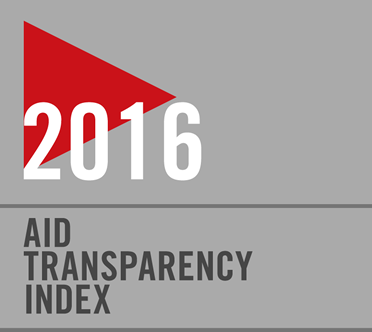Aid is becoming more transparent.
A growing number of donors are taking the lead.Since we began our campaign, there has been a substantial improvement in aid transparency. There are now almost 400 publishers to the IATI Registry; five years ago there was one.
Since 2011, ten publishers, accounting for 25% of total aid, are now meeting the 2011 Busan commitment to aid transparency in full, and another eight have met it in part. Agencies of the United Nations, the U.S. government and the European Commission have improved their data transparency by developing common platforms and trying to work together.
The majority of donors are still underperforming.
There are still a few organisations that don’t appear to accept the need for transparency at all, and refuse to engage on the question. But they are a small minority.
The majority fall into two categories. Either they agree that transparency is important, but publish data that is out of date, incomplete or inconsistent, or they publish data to the IATI Registry and their own websites, but without the detailed information at the activity level, or the contracts or data on results that would allow them to be held to account.
We’re raising the bar.
The Aid Transparency Index has been going since 2011, and its methodology has remained substantially unchanged since 2013. When we first produced the Index, no donors were in the ‘very good’ or ‘good’ categories. Now a third of them are.
So we are raising the bar. Later this year we will consult on revisions to the Aid Transparency Index, with a view to testing three main options:
• Looking at a broader set of financial flows, including loans and climate finance.
• Encouraging better quality data that makes it easier to trace aid and its results.
• Focusing on how the data is used, by asking who uses data, what their needs are and how donors can help meet those needs.
Recommendations
If you don’t have data, demand it.
Aid is getting more transparent, but there is a long way to go. Governments and civil society need to work together to identify the biggest gaps and help to close them.
We also know that development is moving beyond aid. So we are calling for donors to make humanitarian aid, climate finance and development finance transparent as well.
If you have data, use it.
There’s more and more data out there. Use it, and tell us what is still missing.
For publishers with good data, that means using open data yourself, sharing information with your country offices, parliamentarians and journalists, so they can hold you to account.
For partner governments, that means incorporating data published in the IATI Standard into your aid management system, and joining that data with budget information.
For civil society organisations, that means adapting and using the data both for your activities and to hold governments to account. For activists, that means using data to fight corruption, and to tackle waste and duplication.
If you produce data, publish it.
Transparency applies to everyone.
Publishers should recognise the right to information enshrined in the Sustainable Development Goals, and publish more and better data on the growing range of aid and development related activities.
Talk to each other to share good practice and lessons. Ask the IATI Secretariat for technical support, and use the IATI Standard as an opportunity to strengthen your management systems and improve accountability.
